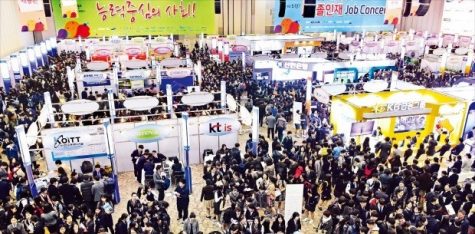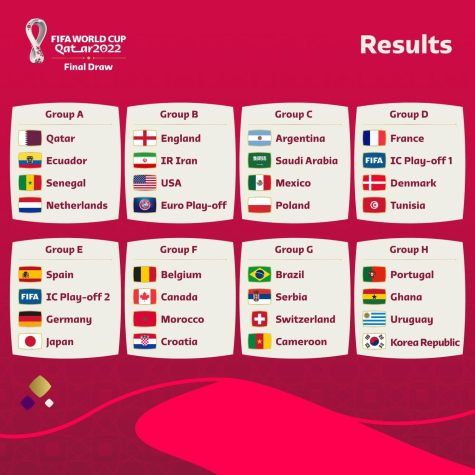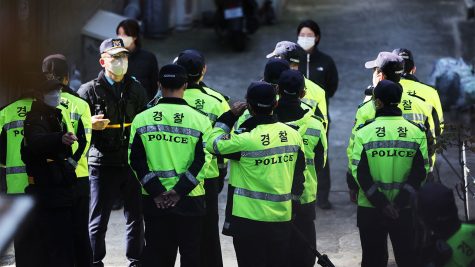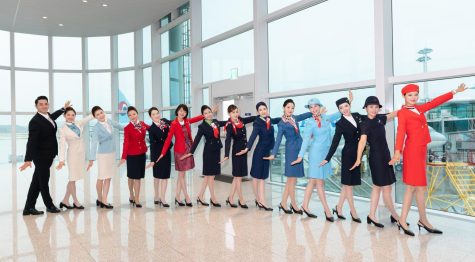Are South Korea’s Underemployed Youth “Over-Educated?”
November 8, 2020

Over-education and under-employment are serious issues in contemporary South Korea. Too many hands willing to work, but too few places willing to engage them. South Korea ranks highest in higher-education participation and completion in the OECD and is renowned for its quality of education around the world; why then are South Korea’s fresh college graduates having such difficulty finding commensurate work?
The answer, according to author and social critic- Lim Seung-soo, lies in the fundamental structure of the South Korean economy. “The primary goal of the South Korean economy is to reap profit” says Lim. While this is not peculiar to Korea, the issue in the Korean system, however, is that it emphasizes efficiency as the primary means to earning profit.
One of the biggest exploitations of human labor in South Korea comes in the form of the non-regular contract. Whereas a regular worker is provided certain guarantees by their employers such as set work hours, wages, and a period of employment, non-regular workers are guaranteed very little. This latter group of workers could (and often do) work more hours than their regular counterparts, not knowing when their contract could be terminated, all for less pay than a regular worker receives.
In theory, the non-regular contract appears unfeasible and simply unfair. The reality in South Korea, though, is that roughly 30 to 33% of its entire workforce are non-regular workers. According to Lim, this is why new graduates cannot find jobs straight out of school; companies can’t even afford to keep their current employees or give them guarantees, much less hire new ones.
Additionally, an article from the Asia Business Daily quotes that too many Korean companies place too great an emphasis on applicants’ “work experience” when most newly graduated college students have no such experience to speak of.
This inconsiderate attitude from Korean companies only allows an extremely small portion of new graduates to find work, leaving the rest in an endless chicken-or-the-egg race in which they must have experience in order to gain experience.
Even so, the fault is not entirely on the country’s economic structure, according to an article on the employment-help website DakChuiSa (닥취사). The issue, the article claims, could be more personal than external.
The first of these factors that lead to underemployment is the lack of a competitive edge among Korea’s young population. Since birth, every Korean student is told by family and society that they must perform well in school, that they must acquire a four-year bachelor’s degree, that they must possess a high level of English proficiency, and that they must have some level of extra-curricular expertise (most often in the form of licenses).
When it comes time for employers to hire new personnel, however, it seems that every applicant is essentially the same. Skillsets are similar, school GPA and testing scores are similarly high, and the two or three licenses that prove “expertise” do not account for much. While it is undeniable that every individual is intelligent and capable, so is everyone else.
Another crucial reason for the lack of work is that there is also a lack of self-reflection among young graduates. Most criticisms of the Korean education system will mention its confining nature, in which students are meant only to memorize material for the purpose of regurgitating it during an exam without truly thinking critically about anything. One of those things that students fail to think about is their own purpose – essentially, what they really want in their lives.
Most students will say that their ultimate goal is to simply “have a job” or to “make money,” but cannot seem to explain why. From an employer’s point of view, who would want to hire an individual who has no passion or curiosity about the work they are applying for, and are simply there to pass the time and make money? Therefore it is important that students look within, to find where their true purpose lies before stepping out into the working world.
While this latter point holds some ground, it is without a doubt true that the Korean economic structure requires change. In its current state, it seems that a vicious cycle is being repeated; one in which less people are being paid, which leads them to spend less money, resulting in the continuous decline of the Korean economy, then finally to the vast underemployment of young Koreans.
The issue is not that South Koreans are “over-educated,” in fact, widespread education is a quality that most nations strive for; it is a quality that defines the nature of a country itself. In no case would a nation in today’s world claim that its issues arise from too many people being educated. The real issue lies in the market’s narrow and unreasonable demands from Korea’s young population.
The only viable solutions to this employment deadlock seem reliant on government intervention in the market. By setting regulations against non-regular contracts, or setting quotas each year of how many new graduates must be employed, South Korea may begin to see an end to the decade-long plight of the capable but unemployed youth.
In a future where economic opportunities are bountiful and employment is not a challenge but a fact of life, we will perhaps see the rise of a self-actualized and purpose-driven generation of South Korean youths. Education in South Korea, however, must not falter or be undervalued. For it is the education of the youth which will bring about change for the coming generations.









